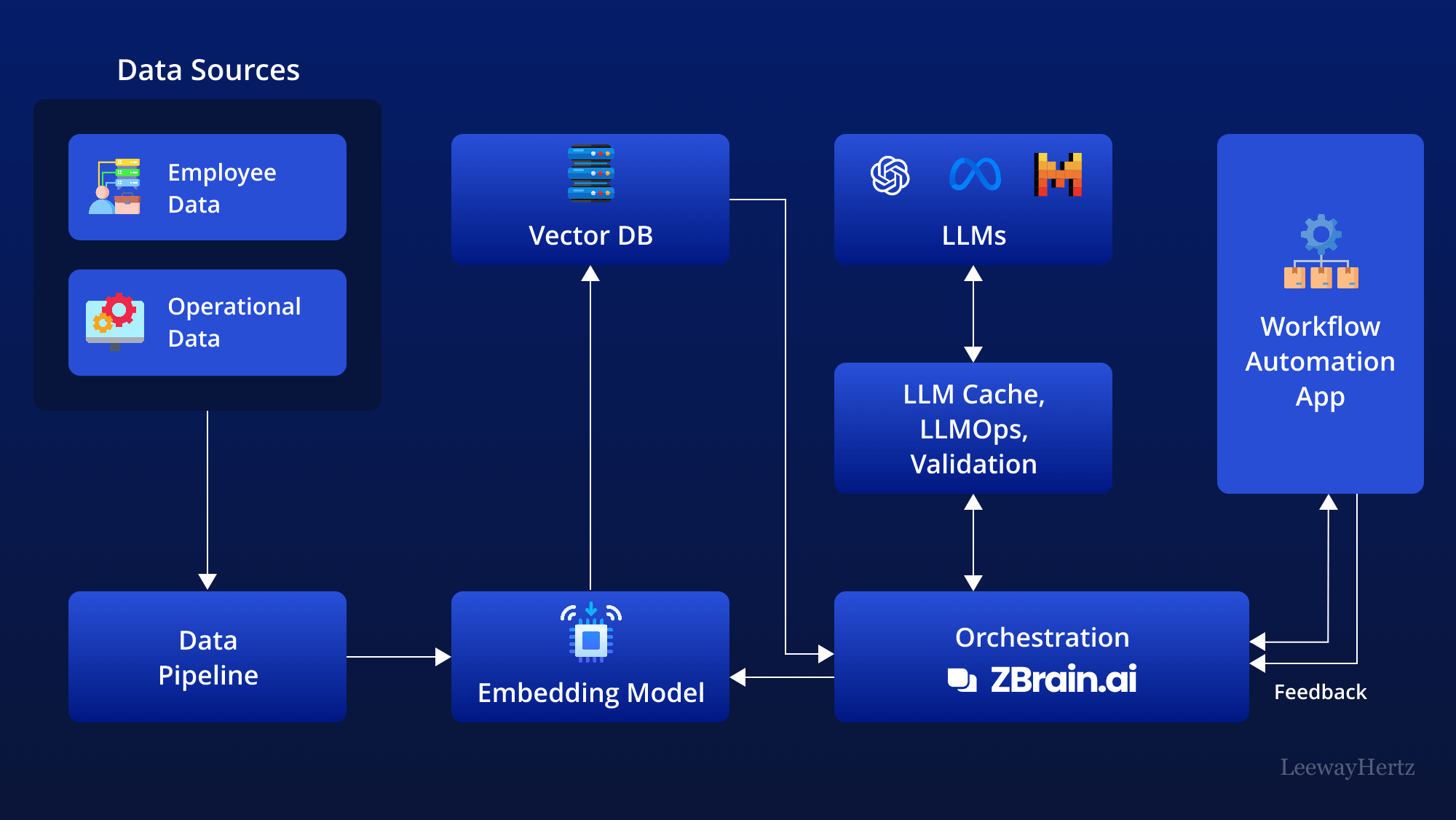AI Workflow Automation: The Game-Changer for Streamlining Process Management
Organizations are under constant pressure to improve efficiency, reduce operational costs, and stay competitive. One solution that has rapidly gained traction is AI workflow automation. This cutting-edge technology is revolutionizing how companies manage their day-to-day processes, offering an efficient, scalable, and intelligent approach to handling workflows. In this blog, we’ll explore how AI workflow automation is transforming the process management system, the benefits it brings, and why it’s becoming a game-changer for businesses of all sizes.
What is AI Workflow Automation?
At its core, AI workflow automation refers to the use of artificial intelligence to automate repetitive, manual tasks in a business process. Traditional workflow automation has been around for years, enabling businesses to streamline processes by automating specific tasks. However, AI takes automation to the next level by adding intelligence and decision-making capabilities, enabling systems to learn, adapt, and optimize workflows based on real-time data.
Instead of merely following a set of pre-programmed rules, AI-driven systems can analyze patterns, make predictions, and handle exceptions without human intervention. This leap in technology is making workflow automation more dynamic, efficient, and capable of handling complex business scenarios.
The Role of Process Management Systems
A process management system (PMS) is the backbone of any organization, designed to manage, monitor, and optimize business processes. From HR functions to procurement, finance, and customer service, process management systems ensure that workflows run smoothly across departments, enabling employees to focus on high-value tasks instead of routine operations.
While traditional process management systems rely on predefined rules and human intervention for oversight, integrating AI into these systems transforms how businesses operate. AI-enabled process management systems not only automate workflows but also bring cognitive insights that enable continuous process improvement, better decision-making, and real-time adaptability.
How AI Workflow Automation is Transforming Process Management Systems
1. Enhanced Efficiency and Productivity
One of the primary benefits of integrating AI workflow automation into a process management system is the boost in efficiency and productivity. By automating repetitive, time-consuming tasks like data entry, approval requests, or report generation, AI reduces human error and frees up employees’ time to focus on strategic activities.
For example, AI can automatically route documents for approval based on set parameters, handle customer queries through AI-driven chatbots, or even predict when stock levels need replenishing based on historical data. This results in faster turnaround times, fewer bottlenecks, and a more efficient operation overall.
2. Real-time Decision Making
Traditional automation systems rely heavily on predefined rules, meaning they can’t easily adapt to changing circumstances. AI, however, learns from data and can make real-time decisions. For instance, in a process management system, AI can detect anomalies in workflows, such as delays or inconsistencies, and take corrective actions immediately. This reduces downtime, minimizes errors, and ensures that processes run smoothly even when unexpected situations arise.
Moreover, AI’s predictive analytics capabilities allow businesses to anticipate potential issues before they happen. For example, in supply chain management, AI can predict disruptions based on market trends, weather data, and shipping delays, helping businesses prepare and adjust processes in advance.
3. Improved Customer Experience
Another game-changing benefit of AI workflow automation is its ability to enhance the customer experience. By automating customer-facing processes like order tracking, service requests, and support queries, AI ensures faster response times and consistent service delivery.
For instance, AI-powered chatbots integrated into a process management system can handle basic customer inquiries, leaving human agents to focus on more complex issues. Additionally, AI can analyze customer data to offer personalized recommendations or predict future buying behavior, leading to a more tailored and satisfying customer experience.
4. Continuous Process Optimization
AI workflow automation doesn’t just perform tasks—it learns from them. By analyzing data from completed workflows, AI systems can identify inefficiencies, bottlenecks, and areas for improvement. This allows businesses to continuously optimize their process management systems, ensuring that workflows are always running at peak performance.
For example, in a finance department, an AI system might notice that invoice approvals are consistently delayed at a certain step in the process. It can then recommend changes to the workflow, such as routing invoices to different approvers based on workload or introducing automatic reminders.
Why AI Workflow Automation is a Game-Changer
The integration of AI workflow automation into a process management system offers unparalleled advantages, positioning it as a game-changer for businesses across industries. Here are some of the key reasons why this technology is revolutionizing process management:
1. Scalability
As businesses grow, so do their processes. Scaling traditional manual workflows often requires significant human resources, leading to increased costs and inefficiencies. AI workflow automation, however, enables businesses to scale processes seamlessly. Whether handling a handful of transactions or thousands, AI-driven systems can manage workflows without additional manual effort.
2. Cost Reduction
Automating routine tasks with AI not only improves efficiency but also cuts costs. By reducing the need for human intervention in repetitive tasks, businesses can lower labor costs, minimize errors, and avoid costly delays. Additionally, AI’s ability to optimize workflows in real time further reduces operational costs by streamlining processes and eliminating waste.
3. Flexibility and Adaptability
AI systems are inherently flexible and adaptable, allowing businesses to quickly respond to changing market conditions, customer needs, or internal processes. Unlike traditional automation systems, which require manual updates to adjust workflows, AI can automatically learn from new data and adjust processes accordingly. This agility ensures that businesses remain competitive in an ever-changing environment.
4. Data-driven Insights
The data collected from automated workflows provides businesses with valuable insights into their operations. By leveraging AI’s analytics capabilities, companies can gain a deeper understanding of process performance, identify trends, and make informed decisions. This data-driven approach to process management allows businesses to stay ahead of the curve and make continuous improvements.
Conclusion: The Future of Process Management
As businesses continue to adopt digital transformation strategies, the role of AI workflow automation in process management systems will only grow. By enhancing efficiency, enabling real-time decision-making, and providing continuous optimization, AI is truly a game-changer for businesses looking to streamline their operations.
The benefits of AI workflow automation extend far beyond simple task automation. By integrating AI into process management systems, businesses can unlock new levels of productivity, cost savings, and customer satisfaction, all while staying ahead of the competition.
If you’re looking to future-proof your business and take your process management to the next level, it’s time to explore how AI workflow automation can transform your operations. Embrace this game-changing technology, and unlock the potential of smarter, more efficient workflows.






